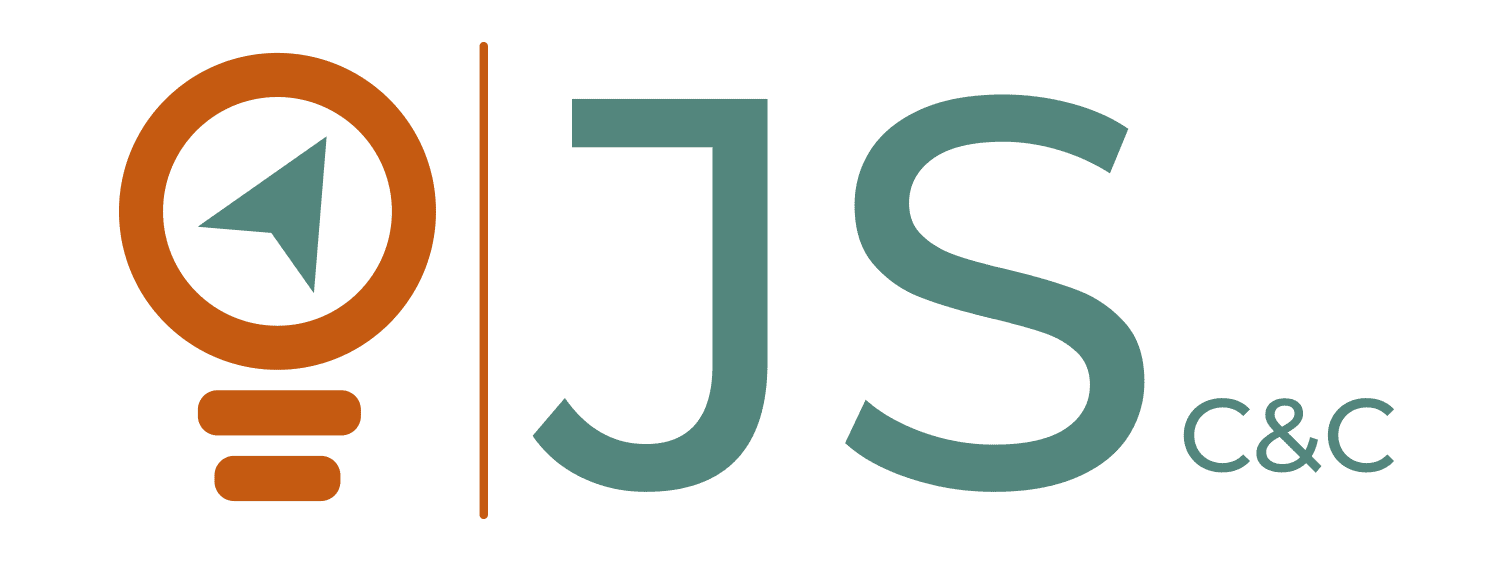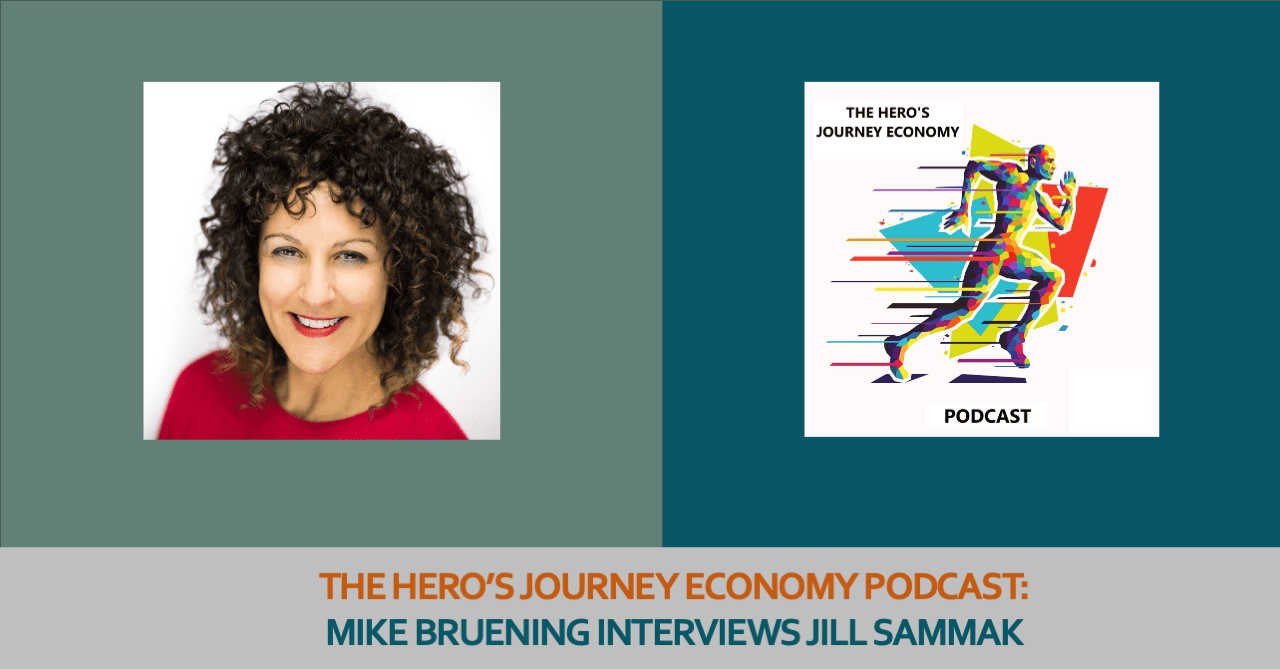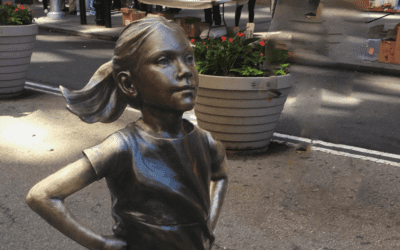Check out a new episode of “The Hero’s Journey Economy” podcast. I talk to host Michael Bruening about how leaders implement change in the coaching process, and I outline some steps everyone can take to begin transformational work. Here are some highlights from our conversation:
MB: Are there times in the coaching journey where you feel you need to get a client somewhere or lead them to an understanding? How does this all work?
JS: That adds a lot of pressure, and it’s really helpful to enter this process with as much openness as possible. A lot of self-reflection is required. Really incredible insights emerge by asking open-ended questions, and sometimes the insight leads to behavioral change. Other times, people have the insight, and it takes longer. It’s a little stickier. So I come to the work with an ease and openness, and I treat each client as an individual.
MB: So there’s no recipe or cookbook. It’s really different based on each person.
JS: I love an organic approach to getting to know somebody, and the freedom and flexibility to go whichever way. I might recommend readings or articles and the occasional assignment, but nothing in the way that I work is prescriptive or done in the same way every time.
MB: That may fly in the face of a lot of these cookbooks for self-help because, if people are really that different, a process or some of the things out there may not be the best thing.
JS: There’s a lot of really good resources out there. It’s best to find what resonates with each individual. If people get value out of more curriculum-based or standardized processes, terrific. Personally, I love working with a client organically, getting to know them and their values and goals and tailoring the approach to meet their needs.
MB: This is becoming maybe cliche in the whole mentoring and coaching thing in movies, but there’s always this point where the student gets really upset at their teacher. Is there conflict in this process, or is that just something that Hollywood has made up for a dramatic story?
JS: I find that the conflict tends to be more a conflict that the client has with themselves. If change isn’t happening fast enough, they can be very hard on themselves. Part of the work is trying to create self-acceptance.
MB: You can’t bank on the short-term inspiration for lasting change, right? If you have to rely on motivation to go to the gym, you’ll never go to the gym, or you’ll go very infrequently.
JS: There are behaviors, and then there are beliefs. Going to the gym may be difficult, but it’s simply the act of going to the gym.
When we’re talking about foundational ways that we’ve seen ourselves in the world, it’s a little bit different than just a behavior. It’s an underlying foundation and doing something different than that belief tells us to do is incredibly challenging. If you wait until it’s comfortable and easy, you’re never going to do it. How willing are we to step into that place of discomfort to create the change we want?
MB: Do you give people a “heads up” as you start to embark on these journeys? Do you let them know it’s going to be uncomfortable?
JS: I do let people know that truly transformational work can be difficult at times. Challenging underlying beliefs can be uncomfortable because we’ve had them our whole lives.
It’s like the foundation of your house: It’s just there. You fix up the rooms, you redo the deck, but you don’t look at the foundation even though everything is built on it.
MB: There used to be more rituals to help people through certain processes. Do you think you might be filling a gap where rituals used to help people through these processes?
JS: I don’t think that having a coach replaces community, but to your point, sometimes the external world doesn’t deliver what we need. When I’m working with people, I’ll ask what they need to do for themselves to close a chapter. If they aren’t given the send-off they may want from a job, they could walk away feeling angry and resentful, but that acts as a weight that prevents them from showing up in their life in the way they may want to.
I don’t see coaching as a replacement for community and traditions, but it can help us cope and give us tools when things don’t go the way we want.
MB: Do you suggest people get outside of the air-conditioned office into nature?
JS: Moving, getting good sleep, eating a healthy diet, being out in nature—these are things that allow us to be more effective in our personal and our professional relationships. Yes, we can operate on caffeine and no sleep, but we’re not operating optimally, and it’s much harder to be mindful when we haven’t given our body what it needs.
MB: I think the Japanese—I’m going to get this a little wrong—but I think when they translate walking in the woods, the closest translation that we have for that word is “spa.”
JS: That’s always interesting when you learn how different languages and different cultures have words that others don’t and what that means. Language is so essential. I pay a lot of attention to language when I’m working with clients because they’ll make a statement and then say, “Well, I didn’t really mean that.” You have just revealed something really important. Sure you can clean it up and say it in a way that feels better for you, but then we’re not paying attention to the data.
MB: Do you find sometimes the story that people tell themselves about their life is off or inaccurate?
JS: Yes: almost always. We are human beings, and we need to make meaning, and stories are the way that we do that. The story is incredibly important, and that’s what I’m listening for when I’m meeting with clients. Many times when people verbalize something from the foundation—from their story— I don’t utter a word, and they’ll reply to their own statement, “That doesn’t make any sense.” Yet, you’ve lived your whole life believing that this is a thing. Saying it out loud, doesn’t mean we’re free of it. It’s just the first step.
MB: From talking to you and other people that are good at this, I realize it’s a gift. It’s a very intuitive thing for you. You’re actively listening and picking up on things that are key. It’s not something everyone can do.
JS: There are certain things that come so naturally to each of us they don’t feel difficult. When I’m working with clients, I help them to see their gifts. We know we’re in that sweet spot when we’re doing work we’re so good at that it doesn’t feel like work. I help people find that for themselves.




